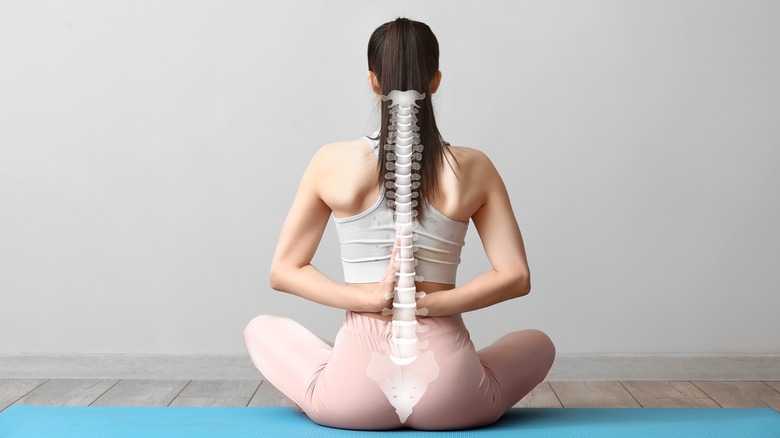How Building Bone Density Can Help Prevent Osteoporosis
The Centers for Disease Control and Prevention estimated that more than 10 million people in the United States aged 50 and older had osteoporosis in 2010, and more than 43 million had low bone mass.
Osteoporosis is known as a "silent disease" because the bones can be dangerously weak for several years before osteoporosis is diagnosed, according to the National Institute on Aging. That's because your body reaches its peak bone mass around the age of 30. Although your body continues to build bone as it breaks down, eventually the breakdown occurs faster than the body can keep up.
You can think of your bone mass like a bank account, according to the Mayo Clinic. Your likelihood of getting osteoporosis depends on how much bone mass you built when you were younger. Your calcium intake, physical activity, hormone levels, whether you smoked, and whether you were underweight can all affect your bone health.
The National Institutes of Health says that if you're diagnosed with osteopenia, you can still protect your bones from osteoporosis. Even if your bones are healthy now, you can take measures now to prevent osteoporosis later in life.
How to keep your bones healthy
According to the Mayo Clinic, increasing your calcium intake to 1,000 milligrams a day will help protect your bones. If you're a woman over 50 or a man over 70 you'll need to bump it up to 1,200 milligrams a day. It's best to distribute your calcium intake throughout the day because the amount the body can absorb goes down if you consume more than 500 milligrams at a time (via Healthline). Vitamin D from fatty fish such as salmon helps the body absorb calcium. You can also get vitamin D from the sun, but some people will need up to 2,000 IU of this vitamin in a supplement, according to Healthline.
Weight-bearing exercises such as strength training or walking also helps prevent osteoporosis, according to the National Institute on Aging.
Following fad diets and having your weight cycle up and down can be bad for your bones, according to Healthline. Instead, be sure to maintain a healthy weight by consuming adequate calories each day.
Healthline also suggests eating enough protein to keep your bones strong, but don't go overboard with your intake. Too much protein extracts necessary calcium from your bones.
Because smoking has been linked to poor bone health, you'll also want to quit the habit to preserve your bones later in life, according to Mayo Clinic.
If you drink alcohol, keep it to one drink per day for women and two for men.


